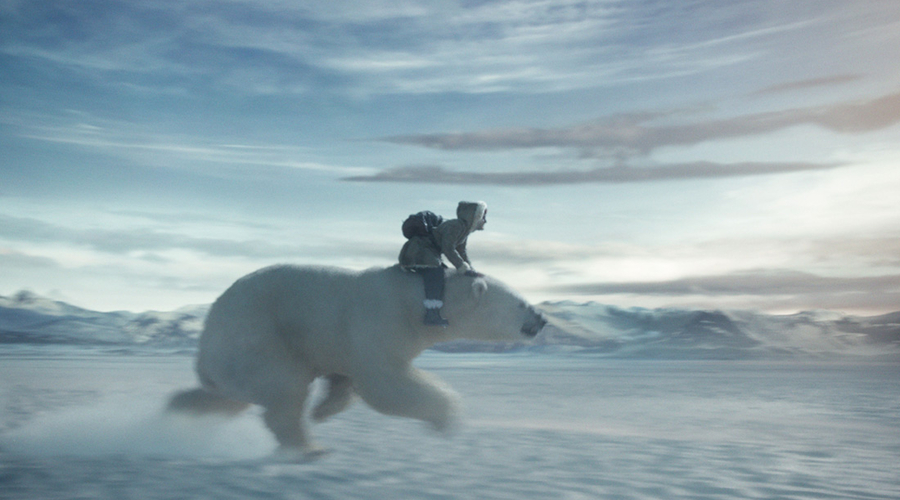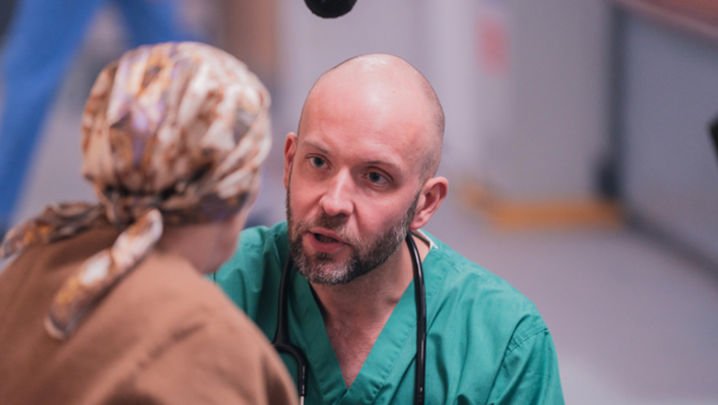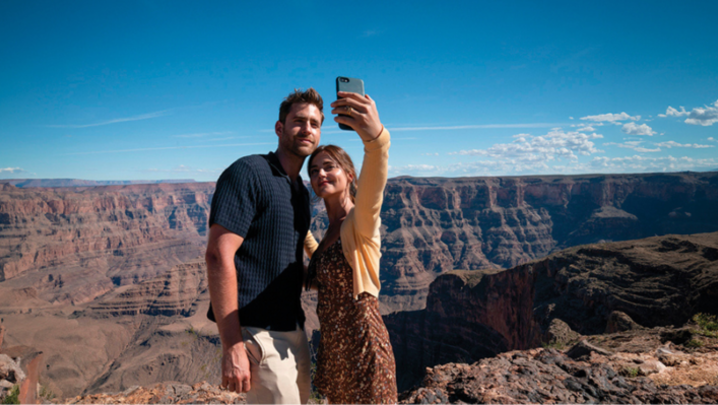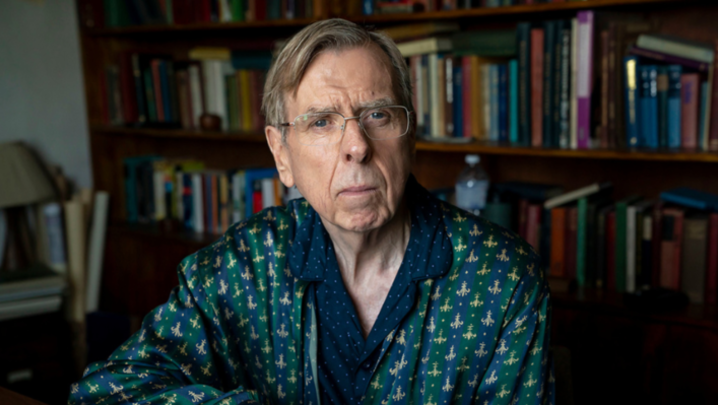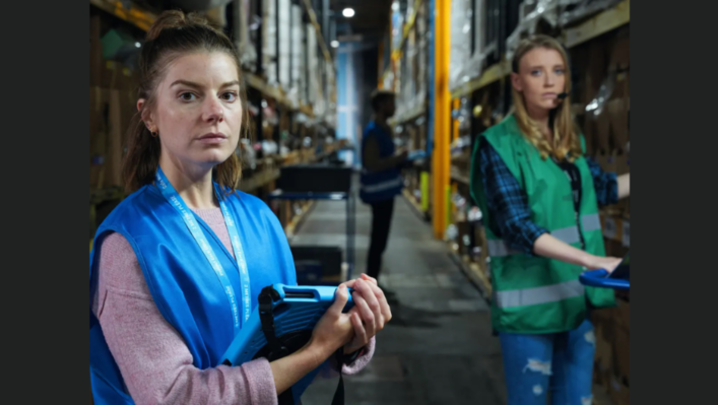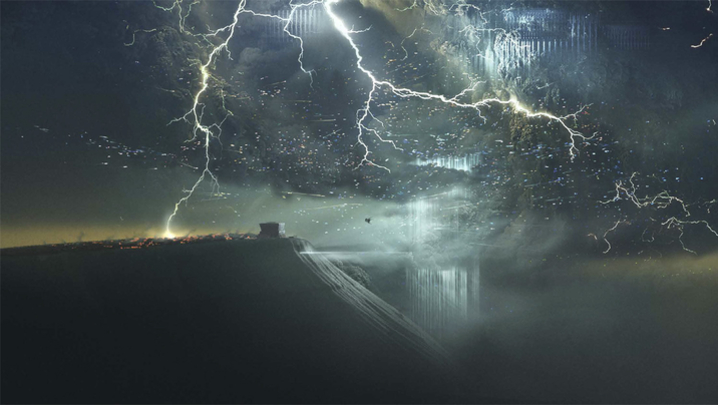Russell Dodgson won both an RTS Craft & Design Award and a Craft Bafta this year for the special effects in BBC One’s His Dark Materials.
By trade, he is a VFX supervisor, but is also creative director of television at the visual effects and animation studio Framestore.
What do you do as a VFX supervisor?
I’m responsible for all the visual effects in a show, which comes down to two main things: helping the production get the best creative use of their money on screen; and, during filming, ensuring the correct material is acquired to allow all the brilliant VFX artists to do their job.
When are you brought on board a production?
Increasingly, we start right at the beginning with the script, and work through production and post-production.
That sounds like a long job?
One series of His Dark Materials takes 18 months to two years of my time – it’s a big investment, so you have to love your job and the project.
How did you get into VFX?
I studied editing at university – my cousin is a natural history and documentary editor, and I was amazed at how he pieced together stories from animal footage. I also loved movies as a kid. I then took a detour and became a breakdancer for five years – I’ve always been fascinated by physical movement and also spent most of my youth doing martial arts.
Then, I saw a DVD extra on the visual effects in Black Hawk Down. That seemed more my thing than editing, because of its connection to movement and animation. So, I went to Bournemouth University and took a master’s in VFX.
What were the first effects you produced?
I took another detour, and started a company with a friend who is a director of photography (DoP) to shoot movies for architectural developments in the Middle East. I directed the lifestyle and visual-effects parts, and supervised the effects in post-production.
I then landed a job at Framestore in London to build a department based around the VFX software Nuke.
What was the first big project you worked on?
At Framestore, I worked on commercials for a long time. My first big non-commercials job was as one of two compositors on the storybook sequence, “The Tale of the Three Brothers”, for Harry Potter and the Deathly Hallows. Commercials, because of the range of work they offer, are such a great training ground – you have to make the effects look as good as they can, often without the resources you ideally need.
Eventually, I found myself wanting to move towards longer narratives and, at the time, TV drama was really coming of age. I became creative director of Framestore’s new TV division and my first show was Mars, Ron Howard’s docu-drama for National Geographic. I then worked on the “USS Callister” episode of Black Mirror.
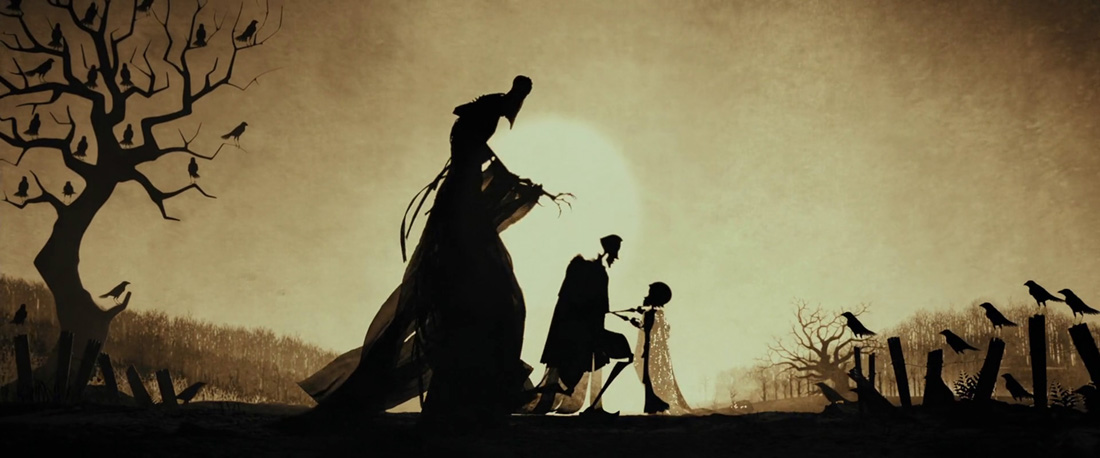
Which other people and departments do you work with closely?
VFX talks to everyone. We start with the script team, advising them where to be brave with effects and where to hold back. On His Dark Materials, we put a lot of resources into animating the polar bear, Iorek Byrnison, who appears throughout the series – you wouldn’t throw in a high-value creature asset for just one sequence.
We also work with: the camera crew, DoP and director; the riggers, who put up the green screens, and the gaffers, who light them; costume; the stunt teams; the production design and art departments; and the actors – they have to know how to interact with the digital creatures.
What do you bring to work with you?
The script and boxing gloves – at Wolf Studios in Cardiff, where we shoot His Dark Materials, there’s a gym next door.
What makes a good visual effects supervisor?
Soft skills – you have to know how to work with people, how to read a room, and when to hold back and when to jump in.
Which work are you most proud of?
Artistically, “The Tale of the Three Brothers” for Harry Potter and the Deathly Hallows, and the animation on His Dark Materials. The latter has film-level creatures throughout, performing alongside actors, delivering plot and emotion.
His Dark Materials is a grounded fantasy and the visual effects have to serve the story – your job is not to upstage the actors.
This means getting the movement and performance of the creatures to sit well with the actors’ performances, rather than feeling like a stuck-on visual effect. That’s the kind of work I’m proud of, not making big things explode.
But when there’s a need for explosions – do you prefer real or digital?
A real explosion, always, unless it’s unrealistic or unsafe.
What are the best and worst parts of the job?
The best is being around people who are brilliant at what they do; the worst is that it takes me away from my family.
Are there any tricks of the trade you can share with us?
Technical solutions aren’t necessarily best – what sounds bulletproof on paper can fall apart when it’s used in anger: when filming, not everyone has the desire to be bogged down by technology. It’s why we use puppets rather than more technical ways to represent creatures on set – puppets offer something for the actors to perform with.
What advice would you give to someone wanting to work in VFX?
You have to love creating art. Watch films actively, not passively, and think about why a particular shot affects your emotions. Buy a camera, take photos and work out what you like. If you are coming from a science background, make sure the televisual or filmic output of your work justifies your science knowledge.
Art or science?
VFX is such a broad area, so you can be entirely artistic and not worry about the science. You can also be entirely science-driven and write VFX software.
I come more from an arts background, other colleagues at Framestore are pure physicists. Personally, I love storytelling and VFX offers me a way of telling stories.
What would you love to work on?
Before His Dark Materials, I would have said that, because I loved the books. Now, it’s enough for me to work with talented people.
Visual effects supervisor Russell Dodgson was interviewed by Matthew Bell.

